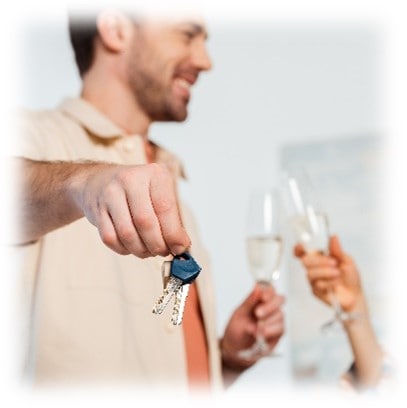How to Tell If You Need a Ride Home
 If you’ve been drinking, it’s crucial to know when you need to give someone else your car keys.
If you’ve been drinking, it’s crucial to know when you need to give someone else your car keys.
Driving after drinking is dangerous. According to Winston Lai DO, a family medicine physician at PIH Health, “Being under the influence of drugs or alcohol can impair your judgment, coordination, and reaction time, increasing the likelihood of getting into an accident when you’re driving.” But how much is too much? And what if you think you feel okay enough to drive? Many people ask themselves these questions when they’re out. Or they assume that if they don’t feel very drunk, then it’s okay to get behind the wheel. But, thinking that puts you and others at risk.
Here are some clear signs that you should get a ride home and not drive yourself:
- You feel drunk. If you're feeling impaired, don't drive.
- You have difficulty concentrating or paying attention. This is a common side effect of alcohol and makes it difficult to drive safely.
- You're having trouble making decisions. Alcohol can make it harder for you to make good decisions, making it dangerous to drive.
- You have trouble walking or standing up straight. Another sign of impairment. If you're having trouble with your balance, don't get behind the wheel of an automobile.
- Your vision is blurry. If you can’t see clearly, you should not be driving.
- You're feeling sleepy. Struggling to stay awake can be dangerous because you may doze off while driving.
If you experience any of these signs, don’t drive. Even if you don’t have easy-to-spot signs of impairment, it’s best to err on the side of caution if you’ve been drinking. Remember, even if you’re under the legal limit, you may not be able to react fast enough to prevent an accident from occurring.
A slower reaction time may cause you to drift into other lanes or off the road. It may be why you don’t react quickly enough if another driver pulls out in front of you or an animal or person darts into the road. You may not slow down in time if a traffic light turns red or may lose control of the car if an obstacle is in your way.
“I strongly advise against drinking and driving, as it not only endangers lives but also carries legal ramifications,” explains Dr. Lai. “Instead, always designate a sober driver, use public transportation, or utilize rideshare services to ensure your safety and the safety of others. Remember, responsible choices contribute to a safer community for everyone.”
Also, it’s important to note that drinking is not the only reason you should not get behind the wheel of a car. If you are under the influence of drugs, including marijuana, it is also dangerous and illegal to drive. Marijuana and other drugs affect areas of your brain that control coordination, memory, balance, and judgment. This can make it harder for you to make decisions, slowing your reaction time. It can also distort your perception and impair your coordination, making driving dangerous. If you have used drugs of any kind, including marijuana, don’t drive.
Understanding when you need a ride home is essential for personal safety, legal compliance, as well as the well-being of the community. Making responsible transportation decisions contributes to a safer and more secure environment for everyone on the road. So, the next time you find yourself questioning whether you're okay to drive after drinking, remember these signs and take the necessary steps to ensure a safe journey home. Drive responsibly, stay safe, and be a part of building a secure environment for everyone.
Learn more about Winston Lai DO by visiting his provider profile or check out other PIH Heath providers like Dr. Lai.